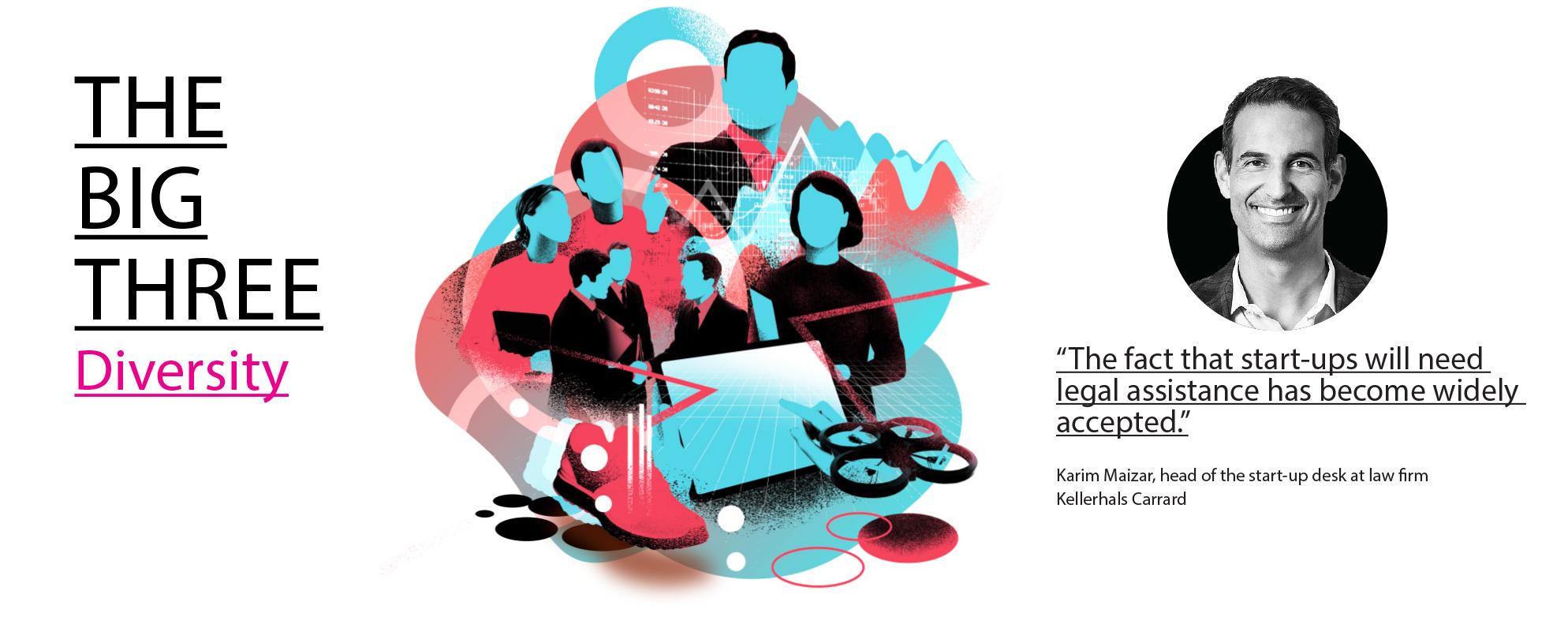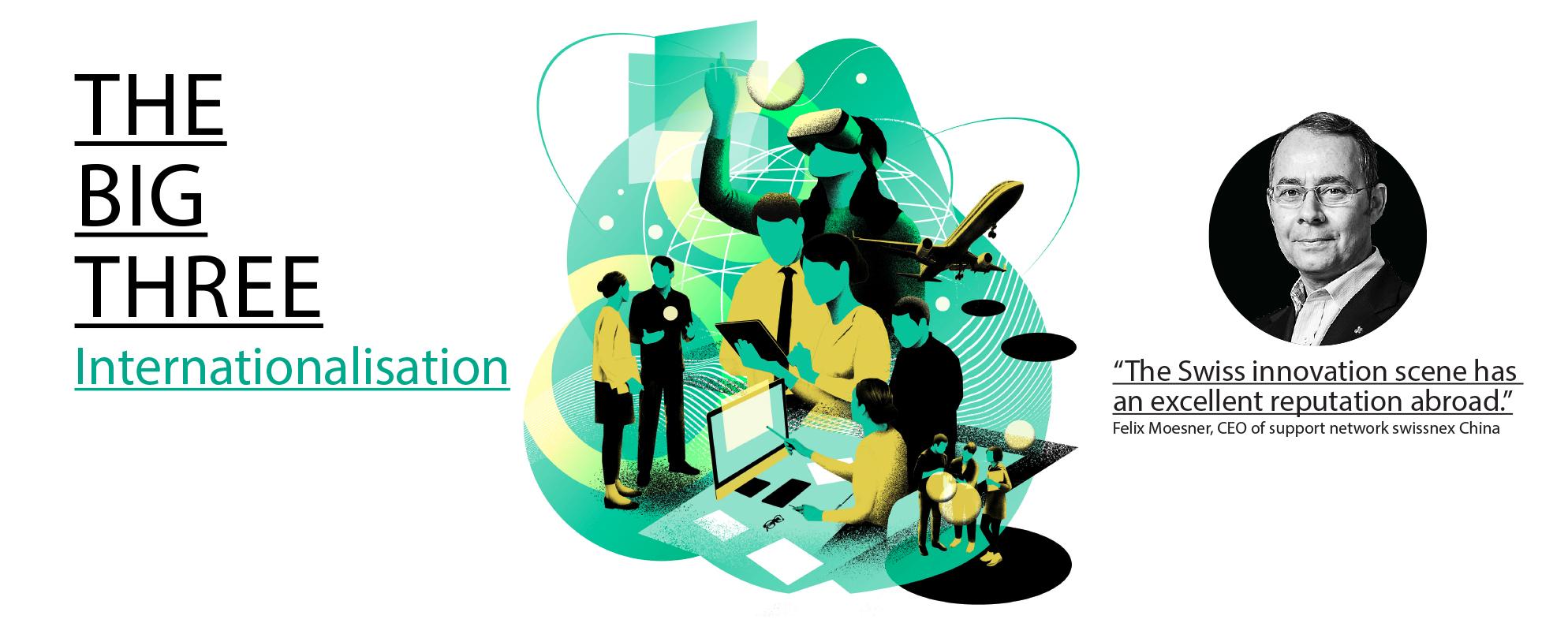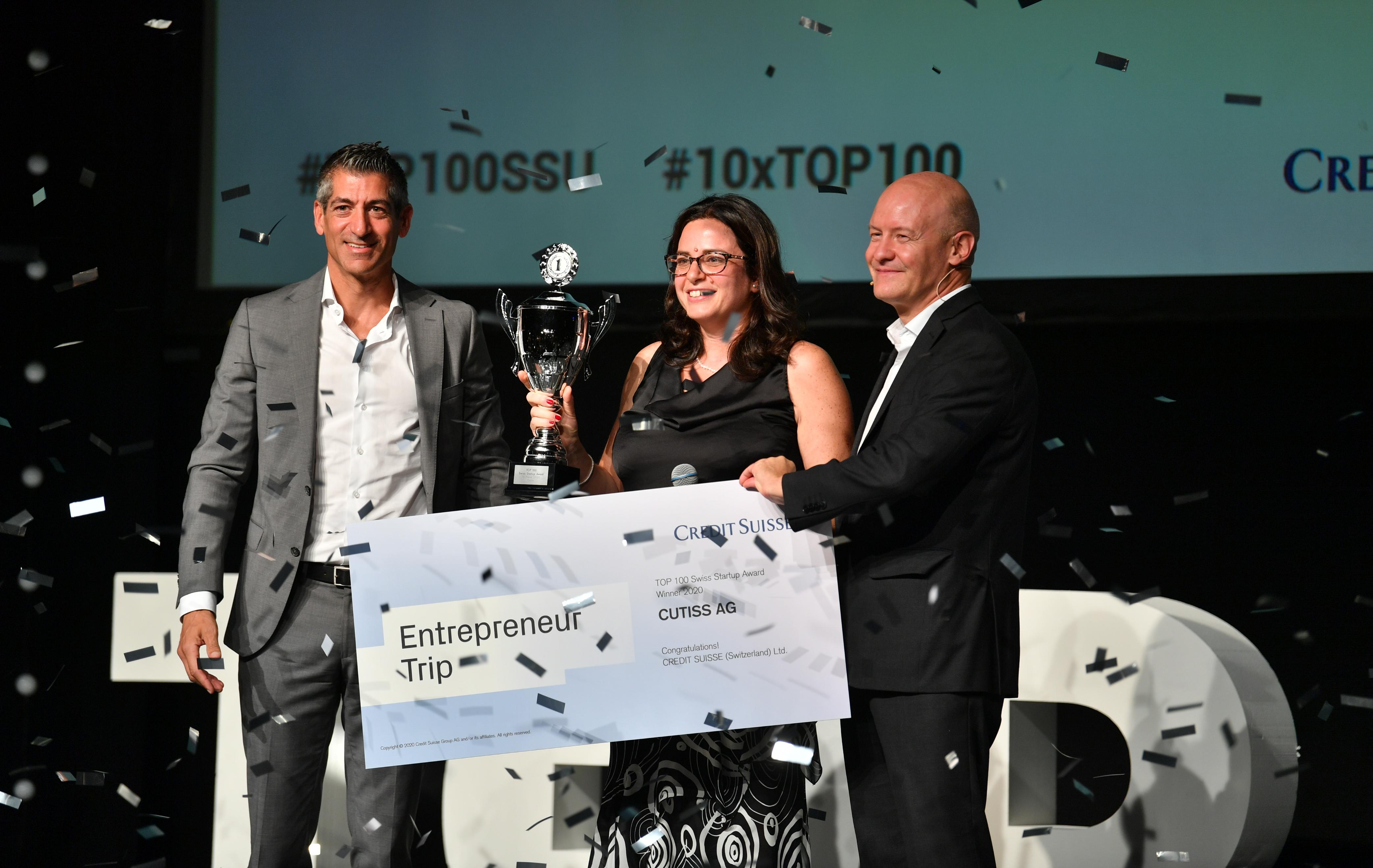Karim Maizar on diversity – TOP 100 Swiss Startup Magazine 2020
Roger Federer, machine learning and success in Asia. Based on three megatrends, we show how the startup ecosystem has changed since the launch of the first TOP ...
Read more07.12.2020 08:05 Isabelle Mitchell

The big three: Roger Federer, machine learning, and success in Asia. Based on three megatrends, we show how the startup ecosystem has changed since the launch of the first TOP 100 Swiss Startup Award in 2011. We talked to entrepreneur and start-up investor Ariel Lüdi about our lives being fully digital.

Ariel Lüdi thinks along broad lines: technological innovations run in cycles, says the investor from Zug, who became wealthy with the sale of an e-commerce company to SAP: “First, everyone talks about the new big thing, then the new becomes so normal that you don’t hear a word about it.” He cites cloud technology as an example. Ten years ago, it was the hottest thing in the world of IT freaks. Today, it is clear even to non-technical CEOs that in the medium term, their IT will run in the Microsoft, Google, Amazon or Swisscom data clouds. At the other end of the cycle, on the threshold of becoming a given, is deep learning – machine learning based on open-source algorithms. It allows companies such as Yokoy (39th rank), Neural Concept (48), Archilyse (58) and Altoida (72) – and with prefabricated building blocks – to activate self-optimising platforms.
It’s clear to Lüdi: “The cloud and machine learning have shaped the IT world over the last decade.” They bring productivity leaps to all users; however, in the startup ecosystem, they have an additional leverage effect. In a world of deep hardware investment, stepless scaling and open-source algorithms, the time-to-market shrinks from several years to a few months.
For example, the founders of Yokoy began only in March 2019 and their platform went live in September. One of the brains behind it is Devis Lussi. After a doctorate in neutrino physics at CERN in Geneva, he worked for four years in EY’s data analysis team before starting his own business. Yokoy is also about data: the platform digitalises and automates the expenses process for its customers – from document entry to validation and booking in the ERP system to the recovery of VAT at the tax office. “Artificial intelligence is used all the way,” explains CTO Lussi. Deep learning algorithms convert the smartphone images of expenses receipts into readable text and evaluate them according to certain criteria, such as the location of the shop or restaurant, its VAT number, the currency used, the amount of the tip and the total bill. The algorithms were trained with receipts collected by the founders from friends and acquaintances.
Today Yokoy’s clients include chocolate company Kägi Söhne and financial services provider Swissquote, and the number of documents settled is growing by the day. The scaling of computing power is not an issue for Lussi and his four co-founders. “The capacity of the cloud is practically unlimited and the costs increase with the turnover,” he says. Computing power from a socket spares liquidity and gives startups the opportunity to serve a large international clientele quickly with their platforms. Companies such as Beekeeper (TOP 100 2016-2017) and Coople (TOP 100 2012-2014) have made use of it.
Cloud technology also forms the technical basis for the automation of cross-company processes. Web-based software-as-a-service (SaaS) models allow the sometimes disruptive transformation of entire sectors. In 2020, the TOP 100 list contained 10 fintech and three proptech startups. One of the proptechs is PriceHubble, in 24th rank this year, which digitises the valuation process in the real estate sector. The platform makes use of data on many millions of properties in Europe and Asia, with information about the location, site development and local prices. The system also continuously evaluates user feedback. “It can draw conclusions from the difference between its valuations and the prices actually realised, and is getting better and better,” explains PriceHubble co-founder Markus Stadler. PriceHubble did not implement the underlying mathematical models and classification systems itself – they come from several hundred open-source libraries. “The art,” says Stadler, “is in further developing the algorithms, linking them and feeding them with the right data.”
Lüdi is involved in about 20 startups. As a financier, he always has his business hat on; he estimates that the vertical integration of Swiss software startups is already below 50%: “Thanks to the cloud and open-source libraries, the founders are able to focus fully on added value for the customer.” The tools with which the founders will start their projects in 2025 is open to debate. A hot candidate for ‘professional digitaliser’ Lüdi is the distributed ledger technology on which decentralised transaction databases are based. “Totally overrated at the moment,” he says, “but it will stay.”
The widespread introduction of the new 5G mobile communications standard also has great potential. If the population and industry accept the new proposal from the telecom companies and invest in 5G-capable hardware, it will lead to completely new business models, particularly in the area of the Internet of Things and autonomous mobility. Robotics companies such as Sevensense Robotics (38) and TOP 100 alumnus ecoRobotix (2016) are showing the way.
This is the first of three parts of Jost Dubacher’s TOP 100 Swiss Startup Magazine 2020 article on the evolution of the Swiss startup ecosystem. Read the second part: Felix Moesner's reflections on internationalisation.

Roger Federer, machine learning and success in Asia. Based on three megatrends, we show how the startup ecosystem has changed since the launch of the first TOP ...
Read more
Roger Federer, machine learning and success in Asia. Based on three megatrends, we show how the startup ecosystem has changed since the launch of the first TOP ...
Read more
The 10th-anniversary edition of the TOP 100 Swiss Startup Award celebrated Switzerland’s best startups: Cutiss (1st), Wingtra (2nd), and Piavita (3rd) were the ...
Read more
You have questions about Top100 or would like to exchange ideas with us? Feel free to contact me.
Jordi Montserrat Co-founder and managing partner jordi.montserrat@venturelab.swiss Jordi Montserrat on LinkedIn